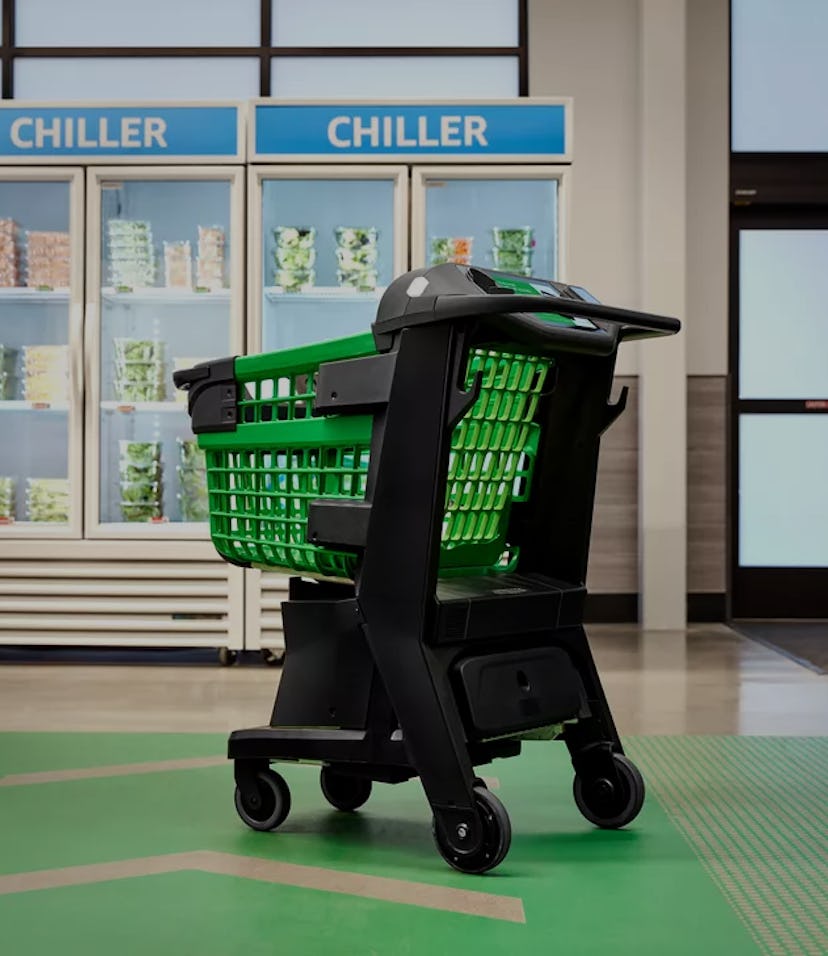Tech
Amazon's new carts will let you dash past the checkout line
The "Dash Carts" carts will launch at Amazon's new Los Angeles-area grocery stores in 2021.

Amazon has created a new shopping cart that tracks items as shoppers drop them in, automatically charging their account when they walk out of the store — no visit to a cashier needed. The new carts, called Dash Carts, recognize items with built-in cameras and will be used at a chain of grocery stores the company is opening in Los Angeles, California next year.
The online retailer has already implemented cashier-less checkout at its Amazon Go chain of convenience stores. But the new stores will be larger, more conventional grocery stores that offer more than just grab-and-go snacks and other pre-packaged items. The Dash Carts will even be able to add fresh produce by weight.
The shopping cart of the future – Apparently implementing the same "Just Walk Out" technology in a larger store environment is more complicated for Amazon because it introduces new factors, like needing to calculate the weight of items that don't have barcodes. As such, the carts contain an array of sensors including cameras and a built-in scale. There will be a display on the cart that shows customers their total bill as they add items. This screen is also where customers will scan a QR code with the Amazon app to authenticate their account and bring up their shopping lists.
Hopefully, Amazon has also innovated on wheel design so the friggin' things don't break and pull left constantly.
The company says that there will be a special line for customers who use the Dash Carts, meaning if you don't want to use an Amazon account you won't have to. It's unclear if this means there will no longer be cameras all over the store as is the case with Amazon Go, but that would certainly be an improvement for privacy if so. It could also allow the technology to be implemented in other stores like Whole Foods without retrofitting them.
Amazon is playing catch up for once – Groceries have become an increasingly large focus for Amazon as delivery and store pick-up become more popular amid the coronavirus pandemic. The company has been using these yet-to-be-opened grocery stores for some of its deliveries.
Amazon has such massive scale in online delivery from warehouses that its lead seems insurmountable, but stores like Walmart have such a large existing footprint from which to deliver fresh produce and other goods within 2-3 hours that it may face competition yet. Walmart is launching a rival to Amazon's Prime subscription service later this month that will cost $98 a year and offer same-day delivery of groceries. Amazon, as ever, is trying to stay out in front.